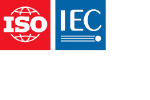Тезис
ISO/IEC 15940:2013 aims to update ISO/IEC 15940:2006 to take into account the changes of ISO/IEC 12207:2008 and to add/complete the set of Software Engineering Environment services for software and system processes.
Software engineering environments services, or SEE services, refers to a collection of services, partially or fully automated by software tools, that are used to support the execution of human activities in systems and software engineering.
ISO/IEC 12207:2008 describes a comprehensive set of processes, activities and tasks to be performed when acquiring or developing a system/software. It does not address their implementation or their automation. These activities are usually carried out within a software or system development/maintenance project, and cover such areas as the specification, development, re-engineering or maintenance of systems.
ISO/IEC 15940:2013 describes SEE services and relates them to ISO/IEC 12207:2008 in a manner applicable to a range of organizations. In defining a life cycle process for an organization, the user needs to find the appropriate level of automation provided by a software engineering environment. This may result in establishing a new SEE service or improving an existing one.
The suite of SEE services described supports the process definitions in ISO/IEC 12207:2008. The purpose is to define a set of SEE services that are compatible with ISO/IEC 12207:2008, and that can be used either as a general reference, or to define an automated software and system process.
Общая информация
-
Текущий статус: ОпубликованоДата публикации: 2013-03Этап: Подтверждение действия международного стандарта [90.93]
-
Версия: 2
-
Технический комитет :ISO/IEC JTC 1/SC 7ICS :35.080
- RSS обновления
Жизненный цикл
-
Ранее
ОтозваноISO/IEC 15940:2006
-
Сейчас
ОпубликованоISO/IEC 15940:2013
Стандарт, который пересматривается каждые 5 лет
Этап: 90.93 (Подтверждено)-
00
Предварительная стадия
-
10
Стадия, связанная с внесением предложения
-
20
Подготовительная стадия
-
30
Стадия, связанная с подготовкой проекта комитета
-
40
Стадия, связанная с рассмотрением проекта международного стандарта
-
50
Стадия, на которой осуществляется принятие стандарта
-
60
Стадия, на которой осуществляется публикация
-
90
Стадия пересмотра
-
95
Стадия, на которой осуществляется отмена стандарта
-
00


